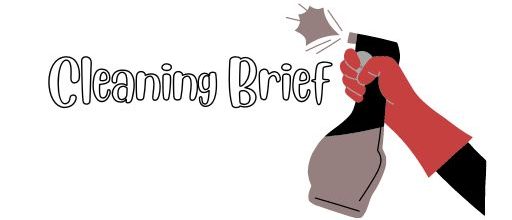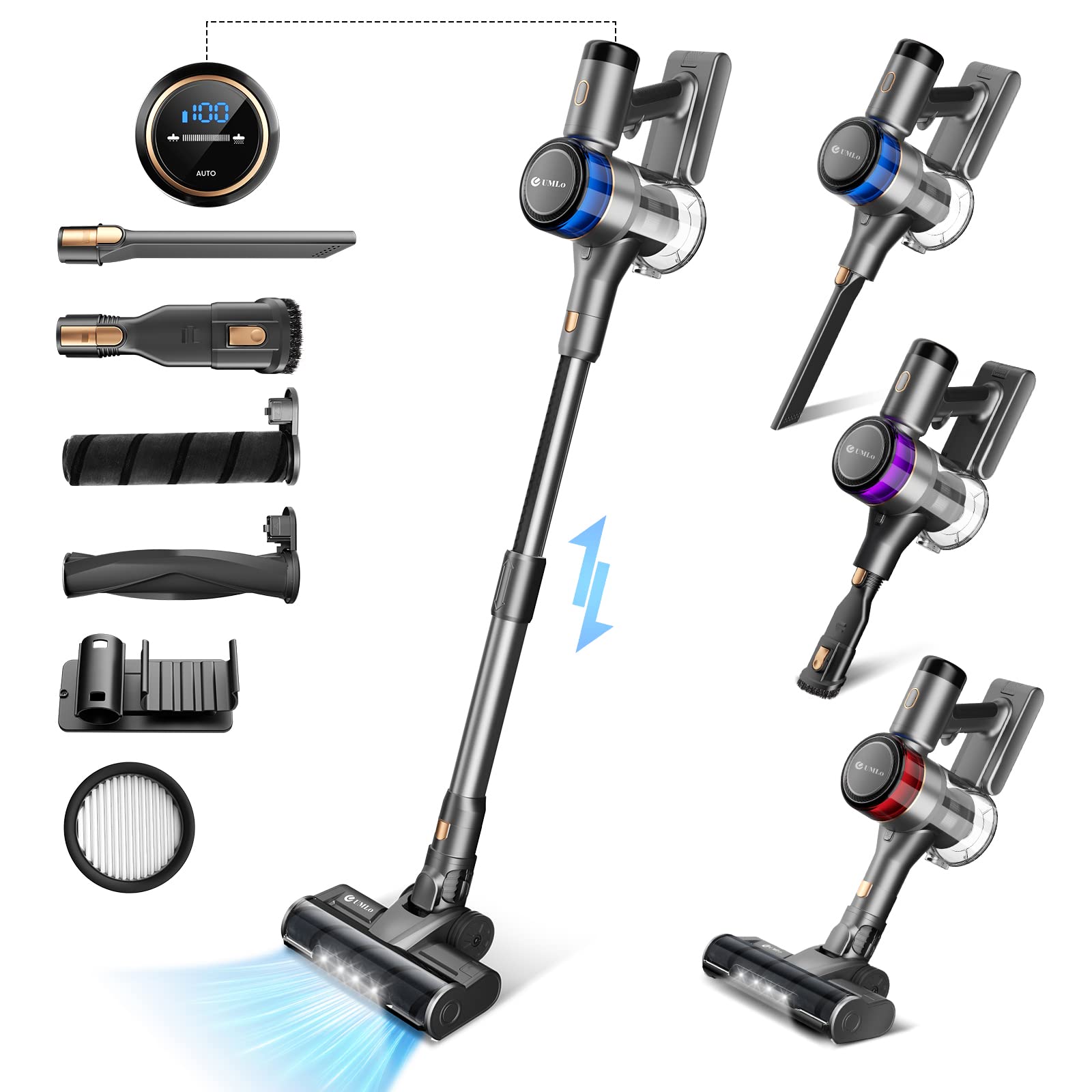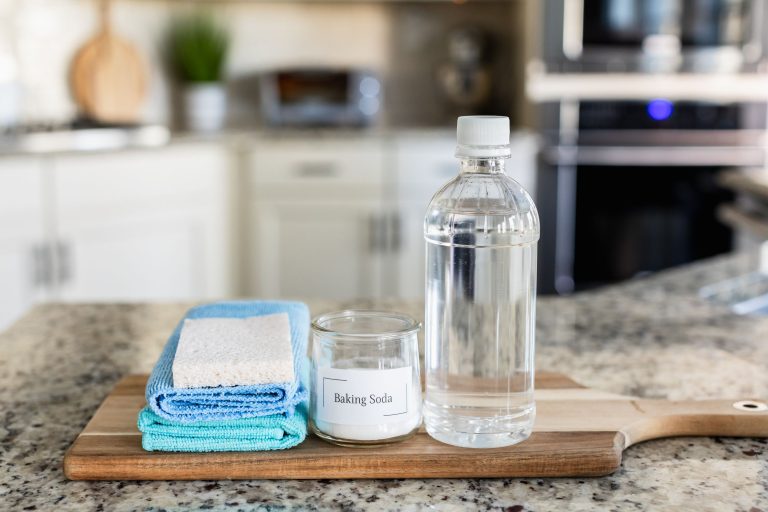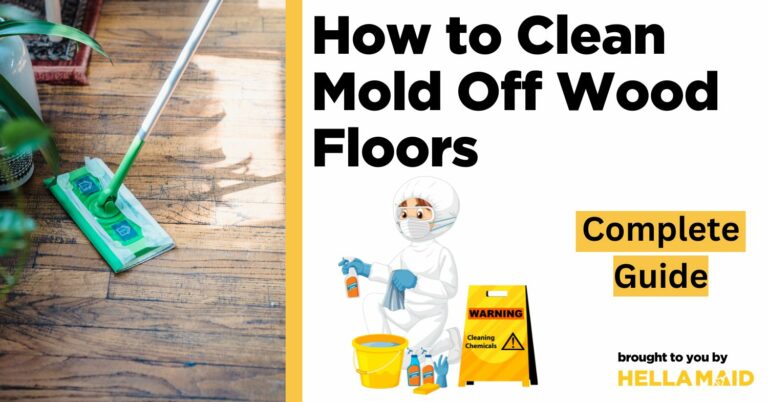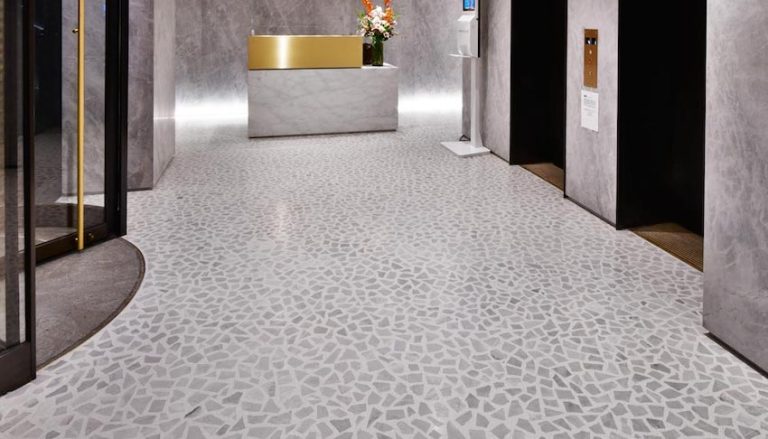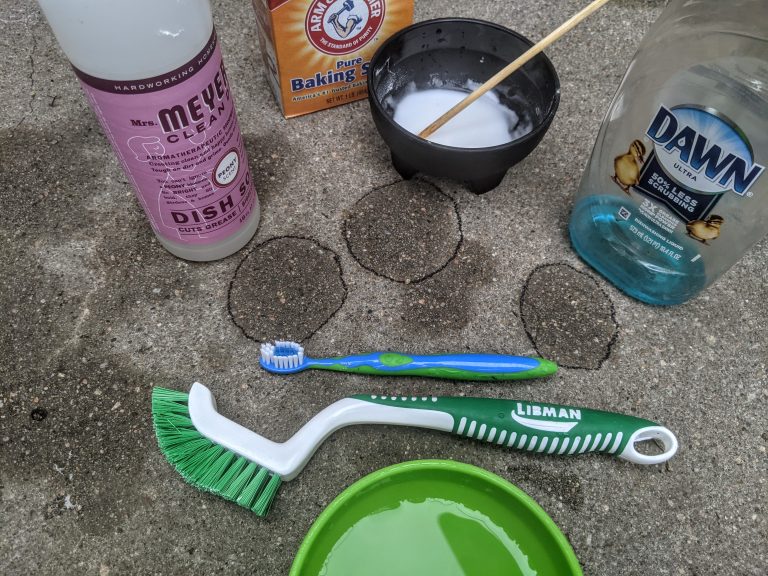Can a Vacuum Clean Hard Floor? Expert Tips and Powerful Strategies
Yes, a vacuum can effectively clean hard floors by suctioning up dirt, debris, and dust particles. Vacuum cleaners are versatile tools that are not limited to just carpets.
In fact, they are also highly capable of cleaning hard floors. Whether you have hardwood, laminate, tile, or any other type of hard flooring, a vacuum can be a valuable cleaning companion. With their strong suction power, vacuums can effortlessly pick up dirt, pet hair, food crumbs, and other debris that may accumulate on your hard floors.
Additionally, many vacuum models come with specialized attachments and settings specifically designed for hard floors, such as soft brushes or hard floor modes, which ensure gentle and efficient cleaning. Using a vacuum to clean hard floors is a convenient and effective way to maintain cleanliness and remove dirt from your surfaces.

Credit: www.amazon.com
The Best Vacuums For Hard Floors
When it comes to keeping your hard floors clean and tidy, a vacuum can be a game-changer. Unlike brooms or mops, vacuums can effectively remove dust, dirt, and debris from hard floors with ease. But with so many options available on the market, how do you find the right vacuum for your hard floors? In this article, we’ll explore the best vacuums for hard floors, including their types and the features to look for.
Types Of Vacuums
There are several types of vacuums suitable for cleaning hard floors. Here are some popular options:
- Upright vacuums: These vacuums are typically powerful and versatile, with adjustable settings for different types of hard floors. They usually come with attachments for easier cleaning in hard-to-reach areas.
- Canister vacuums: Canister vacuums are lightweight and easy to maneuver. They are equipped with long hoses and attachments that make cleaning hard floors effortless.
- Stick vacuums: Stick vacuums are slim and lightweight, perfect for quick cleanups on hard floors. They are easy to store and often come with detachable handheld units for added convenience.
- Robot vacuums: Robot vacuums are automated devices that can clean your hard floors while you sit back and relax. They use sensors to navigate around obstacles and can be programmed to clean at specific times.
Features To Look For
When choosing a vacuum for hard floors, it’s important to consider the following features:
- Suction power: A vacuum with strong suction power can effectively pick up dirt and debris from hard floors.
- Adjustable settings: Look for a vacuum that offers adjustable settings for different hard floor types, such as tile, hardwood, or laminate.
- Brush or roller type: Opt for a vacuum with a soft brush or rubber roller to prevent scratching or damaging your hard floors.
- Filtration system: A vacuum with a good filtration system can trap allergens and particles, improving indoor air quality.
- Maneuverability: Consider a vacuum that is lightweight and easy to maneuver, especially if you have large areas of hard floors to clean.
- Noise level: Some vacuums can be loud, so look for one that operates quietly to avoid disturbing your household or neighbors.
By considering these factors and understanding the different types of vacuums available, you can choose the best vacuum for your hard floors. With the right vacuum in hand, you can keep your hard floors spotless and enjoy a cleaner, healthier living environment.
Optimizing Your Vacuuming Technique
Vacuuming hard floors may seem straightforward, but with the right technique, you can maximize the efficiency and effectiveness of your cleaning. By following these tips, you can ensure that your vacuuming routine leaves your hard floors impeccably clean.
Choosing The Right Attachment
When vacuuming hard floors, it’s essential to choose the right attachment for the job. Using the wrong attachment can lead to unsatisfactory results and even potential damage to your floors. Opt for attachments specifically designed for hard floors, such as a floor brush or a bare floor attachment.
A floor brush is ideal for capturing dust and debris on hard floors without causing scratches. Its soft bristles gently sweep away particles, ensuring a thorough clean. On the other hand, a bare floor attachment, typically featuring a wide nozzle, is particularly effective for quickly covering large floor areas.
Tips for choosing the right attachment:
- Select an attachment suitable for hard floors, such as a floor brush or a bare floor attachment.
- Ensure the attachment has soft bristles to avoid scratching the surface.
- Consider the size and shape of the attachment, opting for wide nozzles for efficient coverage.
Adjusting Suction Power
Another crucial aspect of optimizing your vacuuming technique for hard floors is adjusting the suction power. Different hard floor surfaces, such as hardwood, tile, or laminate, have varying levels of delicacy and dirt accumulation. Adjusting the suction power accordingly can prevent any potential damage to your floors while collecting all the dirt and debris.
If your vacuum cleaner has adjustable suction power settings, start with the lowest setting and gradually increase as needed. For delicate hard floors, such as hardwood, reduce the suction to minimize the risk of scratching or denting the surface. For more stubborn dirt or high-traffic areas, a higher suction setting might be necessary.
Tips for adjusting suction power:
- Begin with the lowest suction power setting and increase if necessary.
- Lower the suction power for delicate hard floors to avoid damage.
- Opt for higher suction power when dealing with stubborn dirt or heavily trafficked areas.
By implementing these tips and adjusting your vacuuming technique, you’ll achieve a sparkling clean hard floor without any worry about potential damage. Remember to choose the right attachment and adjust the suction power for optimal results.
Common Mistakes To Avoid
When it comes to cleaning hard floors, using a vacuum can be a convenient and efficient way to keep your surfaces looking clean and polished. However, there are common mistakes that many people make when using a vacuum on hard floors. By avoiding these errors, you can ensure that your floors are properly cleaned without causing any damage.
Skipping Sweeping
One common mistake that people make when using a vacuum on hard floors is skipping the sweeping step. It’s important to sweep the floors before using a vacuum to remove any large debris or dirt particles. By skipping this step, you run the risk of clogging your vacuum and potentially damaging the suction mechanism. Sweeping before vacuuming also ensures that the vacuum can focus on removing finer particles from the floor without becoming overwhelmed by larger debris.
Using The Wrong Vacuum Type
Another mistake that people make is using the wrong type of vacuum for hard floors. Certain types of vacuums, such as those designed for carpets, may not be suitable for use on hard floors. The wrong type of vacuum can cause scratches or other damage to your hard floors, so it’s important to choose a vacuum specifically designed for use on hard surfaces. Look for a vacuum that has adjustable suction settings and soft bristles to ensure that it is safe and effective for use on hard floors.

Credit: www.nytimes.com
Diy Cleaning Solutions For Hard Floors
Keeping your hard floors clean and spotless can be a challenging task, especially when stubborn stains and dirt refuse to budge. But don’t worry, with these easy DIY cleaning solutions, you can have your hard floors looking their best in no time. Say goodbye to expensive cleaning products and hello to natural, effective solutions!
Vinegar And Water Mix
One of the simplest and most effective DIY cleaning solutions for hard floors is a vinegar and water mix. The acidity of vinegar helps to break down dirt and grime, while its antibacterial properties kill germs and bacteria. To make this cleaning solution, simply mix equal parts of white vinegar and water in a spray bottle. Shake well before use.
Once you have your vinegar and water mix ready, here’s how you can use it to clean your hard floors:
- Sweep or vacuum the floor to remove loose dirt and debris.
- Spray the vinegar and water mix onto a small section of the floor.
- Use a mop or microfiber cloth to scrub the area, focusing on any stains or sticky spots.
- Rinse the mop or cloth with clean water and repeat the process for the rest of the floor.
- Allow the floor to air dry or use a clean, dry cloth to wipe away any excess moisture.
Baking Soda And Essential Oils
Baking soda is another fantastic natural cleaner that can be used on hard floors. Its gentle abrasive properties help to remove tough stains and odors, while essential oils add a pleasant fragrance and antimicrobial benefits. Here’s how you can make a baking soda and essential oils cleaning solution:
- In a bowl, mix 1 cup of baking soda with 5-10 drops of your favorite essential oil.
- Stir well to combine the ingredients.
- Sprinkle the mixture onto the floor, focusing on areas that need extra attention.
- Using a damp mop or cloth, scrub the floor in circular motions, paying attention to stains or grime.
- Rinse the mop or cloth with clean water and repeat the process for the rest of the floor.
- Allow the floor to air dry or use a clean, dry cloth to remove any excess moisture.
These DIY cleaning solutions are not only effective in removing dirt and stains from your hard floors, but they are also budget-friendly and environmentally friendly. Give them a try and see the difference for yourself!
Maintaining And Caring For Your Vacuum
Yes, vacuums are effective for cleaning hard floors. To maintain and care for your vacuum, be sure to empty the dustbin regularly, clean the brush roll, and check the filters for clogs or dirt buildup. Also, adjust the height settings according to the floor type for optimal cleaning performance.
Maintaining and Caring for Your Vacuum Regular Filter Cleaning One of the most important aspects of maintaining your vacuum is regularly cleaning the filters. The filters play a crucial role in trapping dust, dirt, and other particles, preventing them from re-entering the air or clogging up the vacuum’s motor. To ensure optimal performance and longevity of your vacuum, it is recommended to clean the filters at least once a month. Proper Storage Properly storing your vacuum is essential to keep it in good condition and prolong its lifespan. When not in use, it is best to store your vacuum in a clean and dry area, away from moisture and direct sunlight. This helps prevent damage to the vacuum’s components and ensures it remains in top working condition. Here are a few tips to consider for proper storage: 1. Empty the dustbin: Before storing your vacuum, make sure to empty the dustbin to avoid any unpleasant odors and prevent debris from accumulating inside the vacuum. 2. Wind the cord: To prevent tangles and ensure easy accessibility, neatly wind the vacuum’s power cord and secure it in place. This helps prevent damage to the cord and makes it easier to store the vacuum. 3. Protect the attachments: If your vacuum has detachable attachments, it is advisable to store them separately or secure them to the vacuum itself. This prevents them from getting misplaced or damaged during storage. 4. Consider a storage bag: If you have limited storage space or want extra protection for your vacuum, investing in a storage bag can be a great option. These bags provide an additional layer of protection against dust, dirt, and potential damage. By following these simple maintenance and storage tips, you can ensure that your vacuum remains in excellent working condition for years to come. Regularly cleaning the filters and providing proper storage not only improves the vacuum’s performance but also enhances its longevity, ensuring it continues to efficiently clean your hard floors with ease.
Credit: www.thisoldhouse.com
Frequently Asked Questions For Can A Vacuum Clean Hard Floor
Can A Vacuum Clean Hard Floors?
Yes, vacuum cleaners can clean hard floors effectively. They come with special attachments and settings designed for hard floors, preventing any damage while providing efficient cleaning. The suction power and brush bristles are perfect for removing dust, debris, and pet hair from hard floor surfaces without scratching or leaving any residue.
Conclusion
A vacuum cleaner can effectively clean hard floors with the right attachments and settings. Regular maintenance and proper techniques are crucial for achieving optimal results. Understanding the type of hard floor and the suitable vacuum cleaner is essential for efficient cleaning.
With the right approach, a vacuum cleaner can be a valuable tool for maintaining the cleanliness of hard floors.
